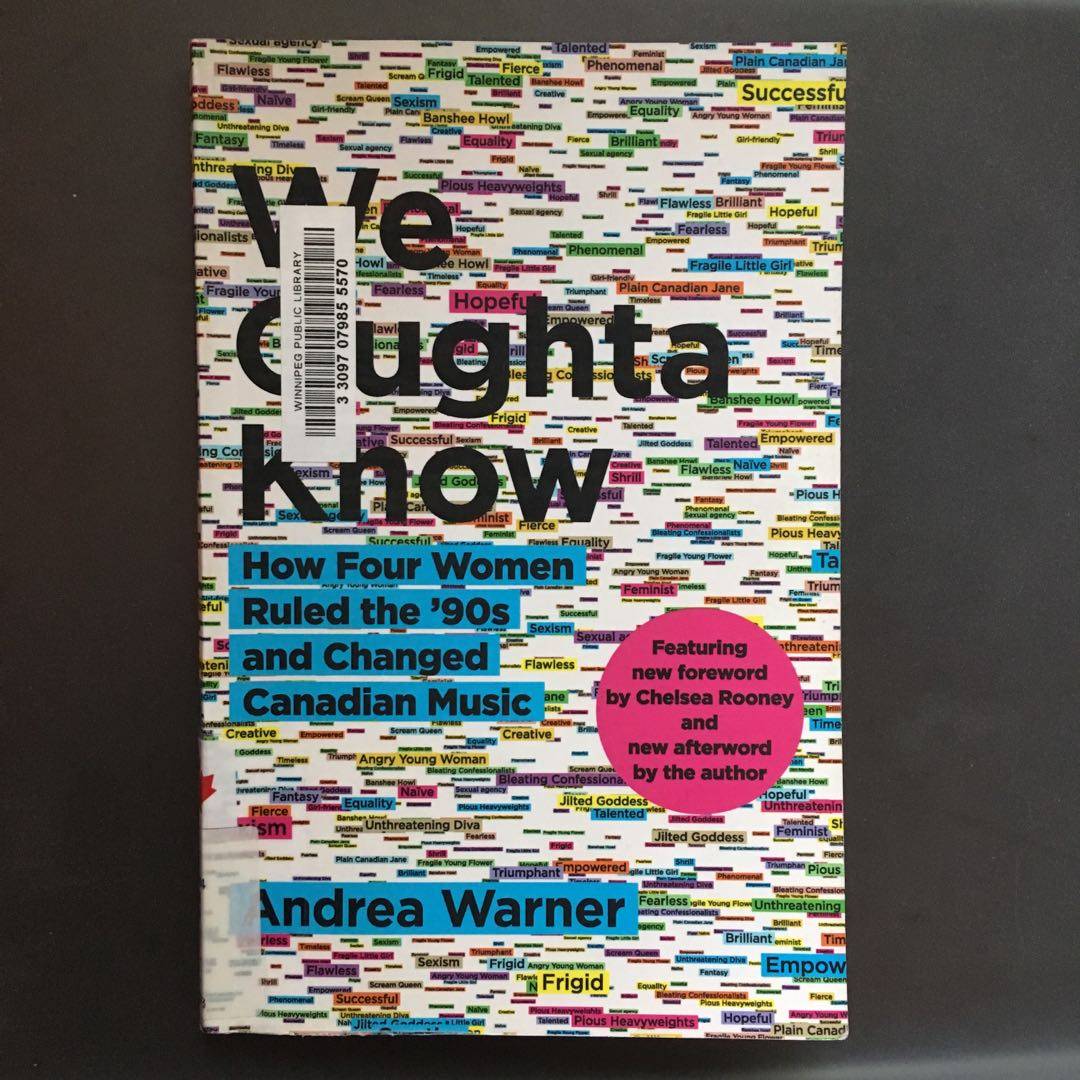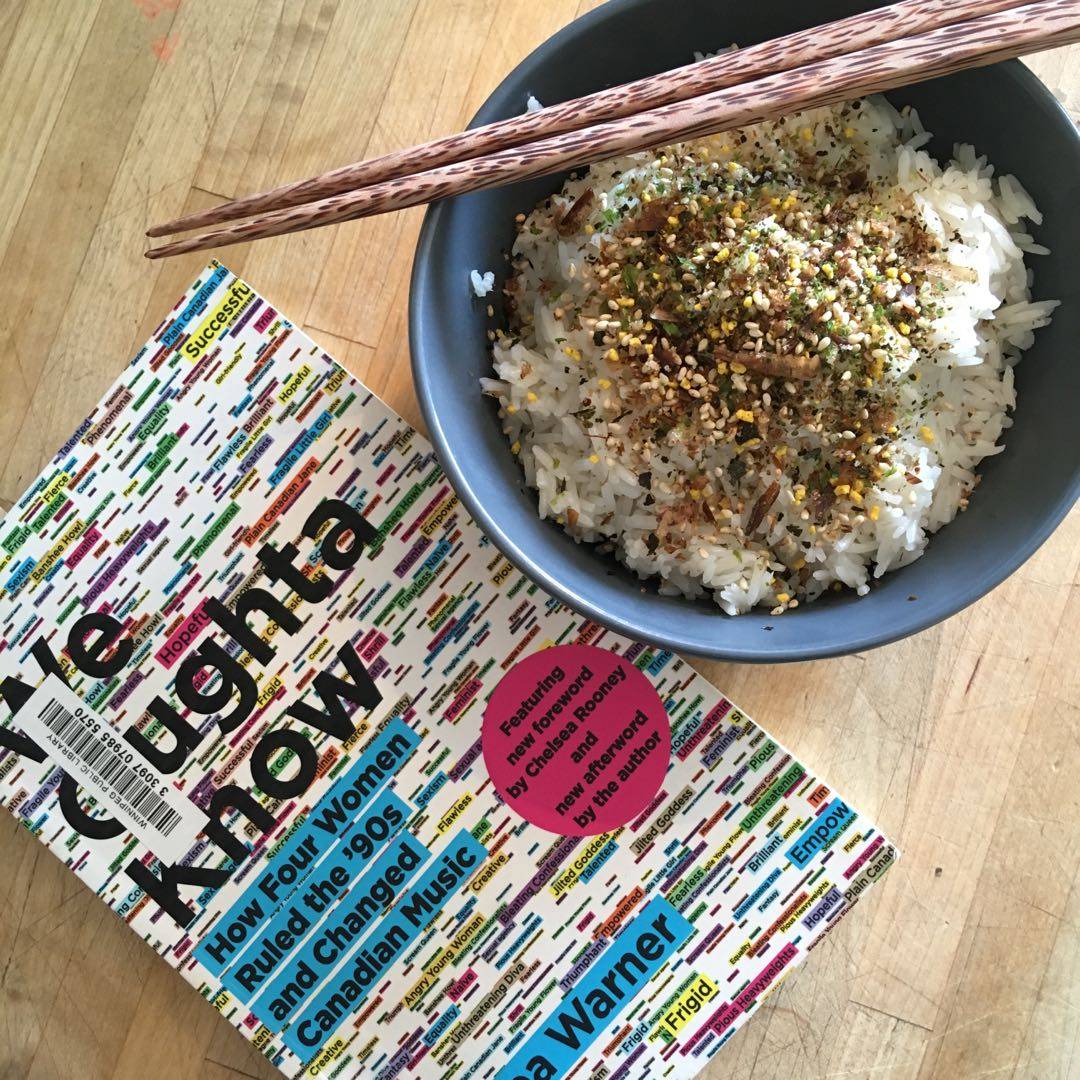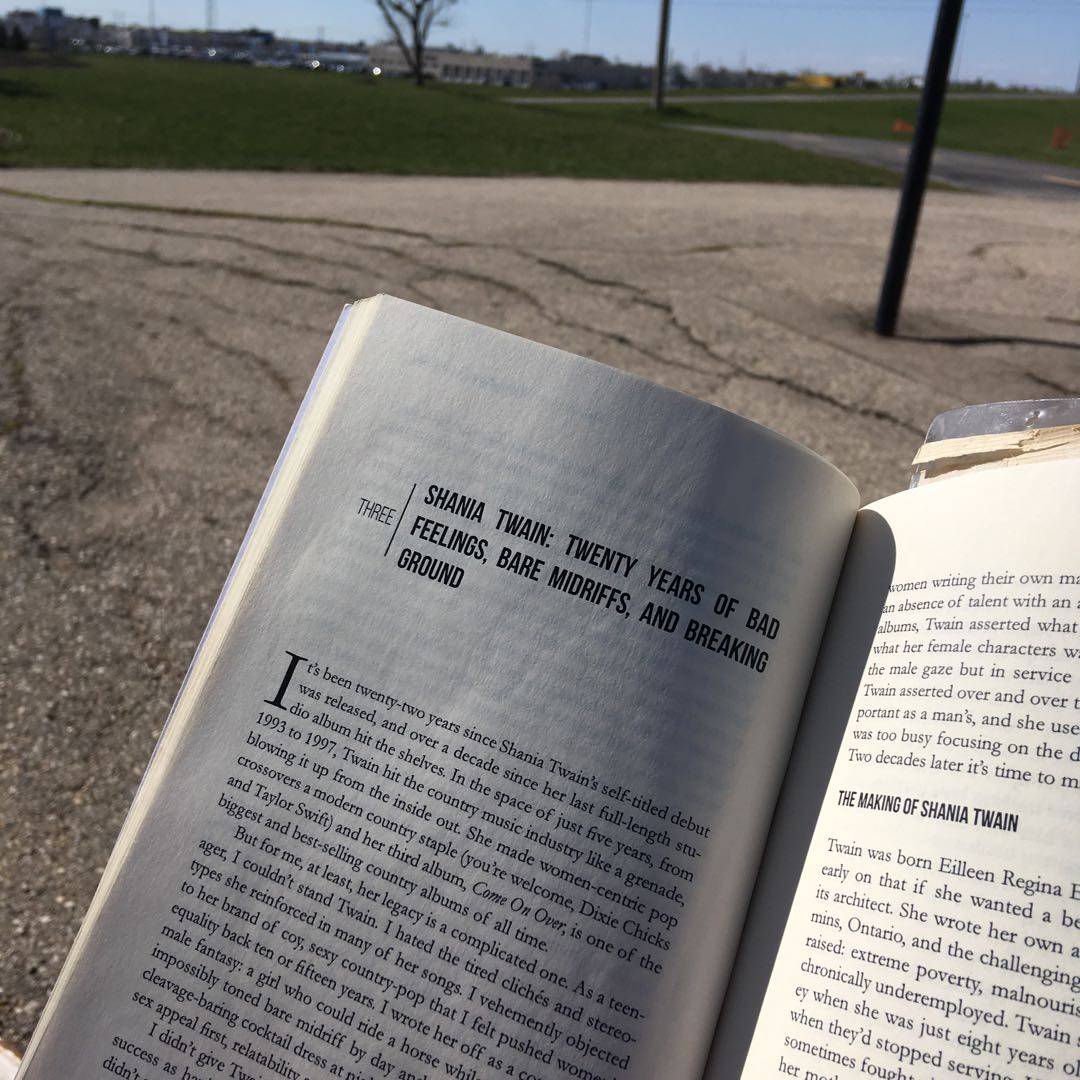I found this an interesting exploration of Canadian music in the 1990s, feminism, and personal reflexivity. I read the 2024 edition with a foreword by Vivek Shraya.
I found this an interesting exploration of Canadian music in the 1990s, feminism, and personal reflexivity. I read the 2024 edition with a foreword by Vivek Shraya.

If you love music, you‘ve gotta check out this book. Warner is concerned with these four artists‘ influence on the 90s musical landscape, but she‘s even more interested in deconstructing her teenage self‘s response to them. Her deep dive into her biases, and the social cues that helped create them, inspired me to look at my own relationship to music from new angles.
Personal bonus: she‘s a by-album listener, like me. That feels rare these days.

Sometimes I make fancy meals and sometimes I just plunk a bunch of my favourite Japanese rice seasoning on basmati.
Then I eat it while I read engaging musical nonfiction. This book is doing it for me in a big, big way, y‘all. Warner‘s take on Celine Dion, Shania Twain, Alanis Morissette, and Sarah McLachlan has got me thinking critically about how I react to music now vs when I was a teenager.

I stopped on top of this hill to read two more chapters of WE OUGHTA KNOW, watch the prairie dogs, and listen to some music. The last few tracks of Led Zeppelin IV started me off, followed by Taylor Swift‘s 1989.
This book is great: scholarly, personal, and highly readable, with lots of responses I can interrogate and argue with. It‘s been a while since I read nonfiction I could approach this way, and I didn‘t realize how much I missed it.